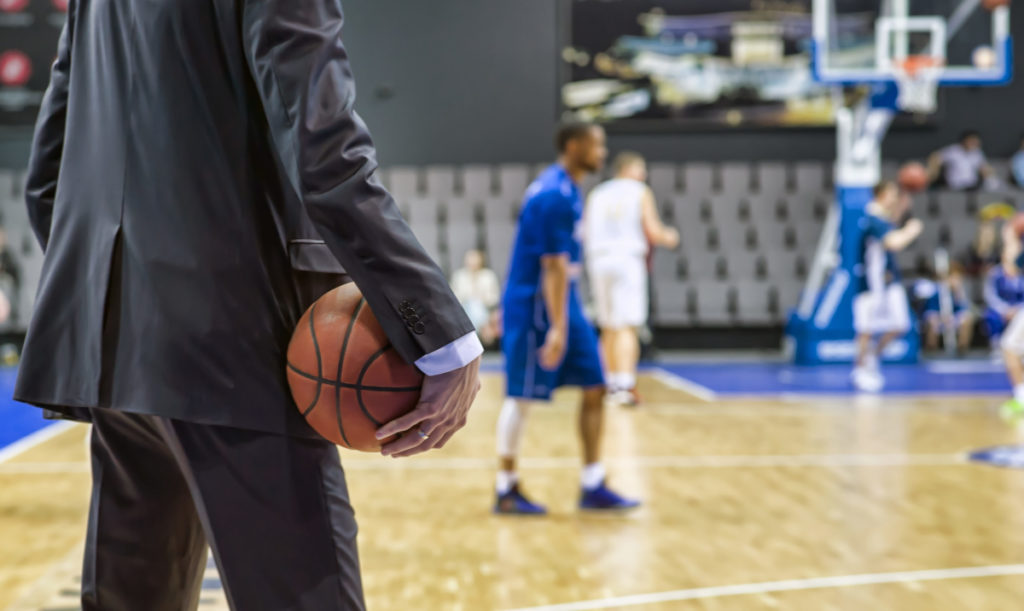Streamline Your Coaching Workflow with Just Play Sports Solutions
In today’s fast-paced sports environment, coaches need efficient tools to stay ahead of the game. That’s where Just Play Sports Solutions comes in. As a partner of the Black Coaches United (BCU), Just Play offers a comprehensive platform that revolutionizes the way coaches prepare and connect with athletes. This all-in-one solution benefits coaches and athletes alike – let’s discover how!
All-In-One Workflow and Automation Platform
Just Play is an end-to-end workflow and automation platform designed specifically for the needs of elite sports programs. With Just Play, coaches can streamline their research, preparation, teaching, and recruiting processes all in one place. It eliminates the need to juggle multiple tools and platforms, saving coaches valuable time and effort.
Prepare, Share, and Analyze with Ease
The robust capabilities of Just Play Sports Solutions empower coaches to take control of their coaching process, streamline communication, and gain valuable insights to elevate their team’s performance. With Just Play, coaches can truly prepare, share, and analyze with ease, giving them a competitive edge in the ever-evolving sports landscape.
-
Prepare: With Just Play’s digital coaching tools, coaches can easily build and manage content. From play diagrams to interactive presentations, coaches have the flexibility to customize and organize their coaching materials efficiently.
-
Share: Distributing content to players has never been easier. Just Play allows coaches to seamlessly share content with their athletes and track their progress. Athletes can access playbooks, terminology, and presentations from any device, ensuring they have everything they need in one convenient location.
-
Analyze: Just Play’s advanced analytics feature provides powerful insights built on play data. Coaches can break down quizzes and player usage to identify areas for improvement and enhance their preparation strategies. This data-driven approach helps coaches maximize their team’s performance.
Products to Enhance Coaching Efficiency
Just Play offers a range of products that cater to coaches’ specific needs, including:
-
Team System: A comprehensive tool that prepares, teaches, and engages today’s athletes. It enables coaches to manage all aspects of their team’s performance in one place.
-
Player Quizzing: Improve athlete IQ and retention through video, text, and image-based questions. Encourage competition with team leaderboards and track performance with detailed quiz reporting.
-
Automated Scouting: Break down opponents faster with automated scouting reports. Utilize automated rosters, statistics, and interactive player profiles to create more engaging scouts for your athletes.
-
Advanced Analytics: Gain valuable insights into your team’s performance with flexible and easy-to-read reports. Identify trends, make data-driven decisions, and stay ahead of the competition.
Testimonials from Successful Coaches
Just Play has been proven at the highest level of sports, and is currently available in basketball, football, and lacrosse versions. Charmin Smith, Head Coach of University of California Women’s Basketball says, “Just Play has made our program better.” And Nate Oats, Head Coach of Alabama Men’s Basketball, describes it as “the best teaching tool in the game.”
Elevate Your Coaching Game with Just Play Sports Solutions
Joining the Black Coaches United (BCU) not only connects coaches with a community of like-minded individuals but also grants access to the invaluable Just Play Sports Solutions platform. By simplifying the coaching workflow, providing comprehensive tools, and offering powerful analytics, Just Play empowers coaches to elevate their performance and achieve greater success.
You can request a demo of Just Play directly on their website.
About the Black Coaches United
Black Coaches United strives to foster more diverse, equitable, and inclusive environments – in our sports and in our communities – through training, mentoring, and advocacy on behalf of black athletes, coaches, and administrators.
Interested in learning more about membership and our mission?






